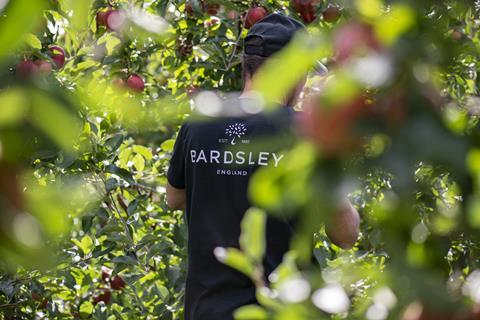
The owner of apple grower Bardsley England has begun an “orderly wind down” of the business following several years of “significant losses”.
In a statement to the London Stock Exchange by the company’s parent Camellia plc, the fifth-generation producer – which was founded in 1892 – was said to have struggled due to low retailer returns and had “consistently failed to perform to expectation”.
Camellia, a British-based multinational agrifood, finance and commodity group, acquired a majority stake in Kent-based Bardsley in August 2021.
However, its ownership of the business had been plagued by a slew of challenges, with Camellia citing above-inflation increases in labour costs, due to government policy on pay for seasonal workers – which had a consequent impact on wage rates for permanent workers – as a key obstacle to success.
“In addition, very high inflation in electricity, fertiliser, chemicals and fuel costs as a result of the Ukraine war had an indirect inflationary impact on other costs,” the group said.
And while consumers had “experienced significant food inflation, key retail customers have continued to resist any meaningful selling price increases”, it added.
“Most of the UK top fruit sector is experiencing difficulties and many producers have removed orchards, discontinued planting and in the worst cases stopped farming,” it said. “Similar cases are reported in the wider fresh produce sector.”
According to Bardsley’s most recent Companies House data, it has posted two years of significant losses – £2.8m for 2022 and £1.7m for the nine months ending 31 December 2021.
Low returns
The update went on to confirm Bardsley’s sales programme for the 2023 harvest was already in place but the “prices achieved are insufficient to make any meaningful headway into the cost inflation experienced over the last two years”.
And despite significant efforts by the management team to increase efficiency and explore new more profitable markets, there was “no reasonable turnaround plan which would result in a profitable business”, it added.
As a result, the closure of all operations is expected by the second quarter of 2024.
The Grocer understands one of Bardsley’s key customers was Aldi, which announced a major supply deal with AC Goatham & Sons in June for the producer to supply 100% of its British apples.
Bardsley England did not respond to a request for comment this week.
Soaring costs
The impending demise of a business once described as the UK’s second-largest apple grower follows warnings that the wider sector was on a “knife edge” in December.
This was due to a 30% increase in the cost of production over the past two years being met by just an 8% average rise in returns from the supermarkets, according to data published by industry body British Apples & Pears.
The situation was driving a “slow decline of British apple orchards and generations of family farm businesses at risk of bankruptcy,” said BAP executive chair Ali Capper at the time.
Her comments followed news, also reported by The Grocer last autumn, that the UK’s six major apple growers had seen a decrease of 133% in profitability over the past year.
“The past few years have been extraordinarily challenging for growers, with average compounded costs of production [across the wider horticulture sector] rising by 39% over the last two years,” said Martin Emmett, chair of NFU Horticulture and Potatoes board
“Results from the 2022 NFU/Promar report suggested that some businesses were considering leaving the sector because of unsustainable costs and ongoing uncertainty about seasonal labour supply post 2024,” he added. “Without action from government and the supply chain to give long-term certainty to growers, unfortunately it is likely that the sector will contract.”







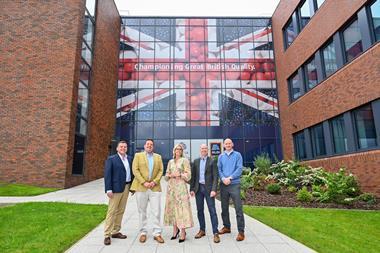
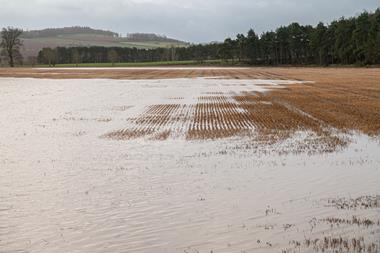
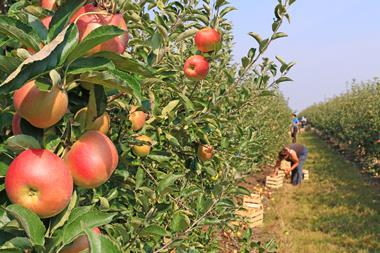
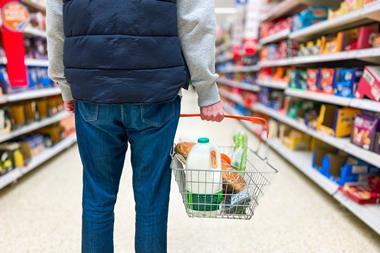
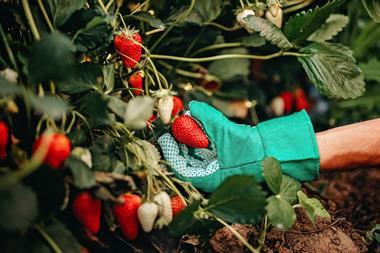
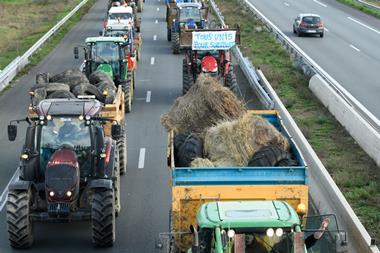






No comments yet